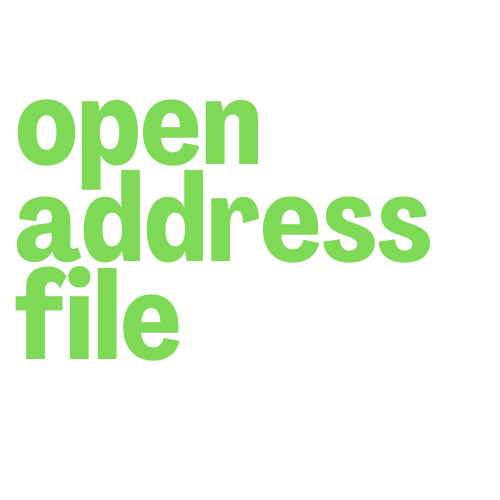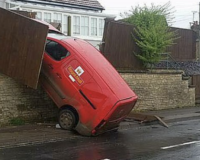1. Background: the consultation
The Geospatial Commission is part of the Cabinet Office and sets the UK’s geospatial strategy. The National Underground Asset Register (NUAR) forms part of this strategy.
NUAR is intended to be ‘a digital map of all underground pipes and cables’. The strategy argues that ‘a national approach [to underground asset mapping] would reduce the risk of asset strikes which endanger life, cause delays, cost money, and disrupt traffic and local economies’.
There have been two NUAR pilots that have explored the concept and secured buy-in from stakeholders in the utility industry. These pilots have learnt from the experience of other work such as Ordnance Survey’s Project Iceberg, LineSearchBeforeUDig and the London Infrastructure Mapping Application.
The pilots have led to a £23m Build Phase due to complete in 2024. It will be led by multinational engineering and design consultancy Atkins with support from GeoPlace, Ordnance Survey, 1Spatial and other partners.
The Build Phase of the project will deliver:
- A set of relationships and data sharing agreements with holders of underground asset data
- A platform for sharing underground asset data
- A map accessible by those planning and executing excavations.
NUAR will include England, Wales and Northern Ireland. Currently it will not include Scotland, which has an existing Scottish Road Works register for similar purposes.
The consultation is on the future operating model for NUAR, including potential legislative changes. There are existing requirements in the New Roads and Street Works Act 1991 for organisations with underground assets to keep and share that information, but these may need to be updated.
Our concerns around the consultation are that the model may repeat the mistakes of the past. This could reduce the immediate benefits and miss opportunities for future innovation.
Hence, our suggestions for the consultation are that the Geospatial Commission should:
- Give statutory undertakers a statutory duty to publish underground asset data for free through an open and secure) API, as in Open Banking
- Require the responsible body for NUAR to engage a wide range of people and organisations to develop open standards that supports existing and future use cases, as in Open Banking
- Ensure the responsible body for NUAR is not-for-profit and has a purpose of maximising benefit to society.
2. Why does NUAR matter?
- Savings from reduced utility strikes;
- Reduced costs and improved efficiency of data sharing; and
- On-site and back office efficiency improvements for projects.
- an opportunity to avoid historic mistakes that have happened with other parts of the UK’s geospatial data infrastructure, e.g. the privatisation of postal addresses along with the Royal Mail that contributed to harm to citizens, businesses and the public sector
- an opportunity to use open, digital methods to build an innovative ecosystem around the data.
3. What parts of the current plans could be improved?
We think the plans can be improved in three key areas:
- A statutory duty to securely publish underground asset data for free through an open and secure API
Existing legislation says that organisations “shall make [their] records available for inspection, at all reasonable hours and free of charge”. This legislation should be amended to require existing statutory undertakers to publish data through open APIs for free.
An open API is the digital equivalent of making records available for inspection. An open API can maintain the original legislative intent of making data available free of charge, keep data secure, and support new use cases as and when they are agreed.
This is a similar approach to that used in Open Banking to simply and securely share data. If this model is suitable for safely sharing personal banking data, then it is simple and safe enough to use for underground asset data.
As, under the current plans, undertakers will need to securely share data with NUAR then we believe supporting an open API will not generate a significant incremental cost.
NUAR’s platform and digital map would use the open APIs, but other organisations could use them too.
Organisations that have a right to inspect the records could then choose to use the information in the way that suits them best, e.g.:
- use NUAR’s platform and digital map,
- use the open API to integrate the data into their existing systems and processes,
- use the open API to build innovative new services,
- or use third party services that may be built on the open API.
This would help deliver the efficiency and innovation mentioned above.
- Engage a wide range of people and organisations to develop open standards that supports existing and future use cases
NUAR should be built on open standards and to open principles. Open standards are widely used across the internet, web, government and industry.
An open standards approach could engage both those parts of industry and government that were involved in NUAR’s pilot phases and other people and organisations with interests in the data.
The Geospatial Commission could mandate that a particular set of use cases be supported to meet legislative requirements, while allowing the open standards process to set other uses.
And, like Open Banking, it would also enable innovation both by broadening the set of needs that the data can meet and encouraging industry to support modern, open and digital approaches.
- Not-for-profit and with a purpose of maximising benefit to society
There are a number of choices available for the body that operates NUAR on an ongoing basis.
The most important factor in this selection is the incentives for the body. Poorly-designed incentives could mean that the body is incentivised to maximise its own revenue, or to shape NUAR towards its own organisational goals rather than societal goals.
We think the responsible body should be run on a not-for-profit basis, and have a formal purpose of maximising benefit to society. It will need to be sustainably funded through a mix of chargeable services, for example from levies from industry, or government funding.
It should also be required to engage with government, asset owners, statutory undertakers, and people and communities impacted by underground asset data when developing the open standard and when making policy decisions.
This would ensure that NUAR delivers its expected benefits, and provide it with the right guidance to navigate to the future.
4. How can this consultation help?
The consultation provides a chance to get recommendations like these into the Geospatial Commission’s plans, but the Geospatial Commission needs to know that people care about avoiding historic mistakes and care about setting up NUAR in a way that is fit for the future.
If we don’t make that case then underground asset data could disappear into a profit-making organisation that charges for access. That will reduce the benefits it could create.
You can respond to the Geospatial Commission’s consultation to let them know that you care.

